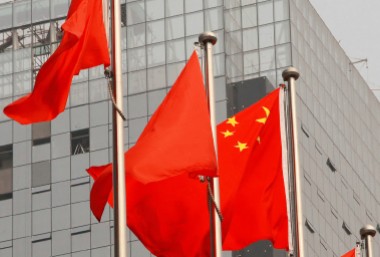With a growing middle class, more and more New Zealand companies are turning to China for opportunities to sell New Zealand made products and services. The traditional reason for doing business with China, namely for cheap manufacturing, is no longer the only reason why Kiwis are travelling to China to do deals.
As well as the usual cultural considerations when doing business in China, intellectual property (IP) considerations must be front of mind. All too often I see IP being given away as a loss leader just to win the first distribution agreement. A company's IP assets often have value well beyond the first shipment so it is vital to understand the value of your IP before doing business with anyone. This is particularly so with China which is a veritable dry sponge for IP, and now very thirsty for it.
To understand China's thirst for IP requires a step back in time. But not far.
China used to be seen as a country where IP rights went to die but it is now one of most prolific users of IP systems both domestically and abroad.
Some commentators believe that the 2008 Olympics were the catalyst for a fully functioning IP system in China. Having made a huge investment in putting on the Olympics, China wanted to get a return on that investment. IP rights clearly had a significant role to play in this, especially in the form of merchandising, brand protection and broadcasting rights underpinned by copyright and trade mark laws.
However, the reality is that China’s changing attitudes to IP have been in the making for several decades. And this change has been no accident. It’s been a very deliberate move on the part of the Chinese government.
China’s first efforts at protecting IP were made for the purpose of attracting foreign investment. Without modern IP laws, foreign direct investment, which has contributed to China's growth as an economic superpower, would not have happened.
Dating back to the early 80s, China modelled the creation of its modern IP laws on the four tigers: Hong Kong, Singapore, South Korea, and Taiwan. These four countries had in turn modelled themselves on post-war Japan. Forty plus years ago, Japan had the reputation of being a low quality manufacturing country. Yet, despite seemingly impossible obstacles created after World War II, they managed to become cutting edge, and continue to be so. South Korea has also managed to achieve a similarly miraculous change. Only ten years ago, Samsung and Hyundai were considered low quality but that certainly isn’t the case today. A lot can happen in a decade.
China’s modern patent and trade mark laws were introduced in the early 90s. They are very young laws and for many years suffered from poor enforcement mechanisms. As a result, it wasn't uncommon back then for companies to question the need to protect their IP in China. After all, having IP rights doesn't mean much in the absence of a good IP enforcement system. Now however, China has such systems and we are finding that many New Zealand companies are increasingly protecting their IP in China both for the purpose of chasing knock-off products and because China offers such high growth potential for New Zealand branded products.
But China’s recent changes aimed at becoming a knowledge-based economic superpower face an uphill battle. A culture of rote learning and saving face do not lend themselves to quantum leap research and development (R&D) and as a result second generation R&D seems to be the norm alongside the acquisition of IP from abroad. Haier, the Chinese consumer electronics and home appliances giant, purchased Sanyo’s whiteware operation from Panasonic in 2010 and more recently, took control of F&P Appliances. Similarly, in 2006, Lenovo purchased IBM’s PC unit and has also just announced that it is buying 21 patent families from US company Unwired Planet Inc for US$100m.
Fuelled by intense competition and economic growth, this insatiable demand for IP is also the root cause of some of the problems faced by IP rights owners in China. Trade secret theft is common; so too is trade mark squatting. However, both issues can be mitigated against. For example, if your business relies on trade secrets, this may be as simple as taking care to not give away all the steps involved in making your product to a single supply chain partner.
Trade mark squatting, like domain name squatting in the late 1990s, continues to catch many out. And it's not just a problem for high profile celebrities and brands, such as Tesla, Kardashian and Air Jordan – all of which have been victim to this activity. Many New Zealand brands have faced Chinese trade mark infringement litigation when making their first shipment to China. The message is simple: if you are looking to export your services or products to China, register your trade marks there. If you don’t, someone else will.
In summary, remember China is a dry sponge soaking up as much IP as it can to catch up with the rest of the world. If you're going there, be extra careful about your IP. Start by understanding the value of your IP or the loss in value to your business if someone else has your IP. Once you know this, you can take appropriate measures to protect it. If the trade secret route is appropriate and there are twelve steps to becoming Kung Fu master for example, only give away ten steps. If you cannot keep your IP secret, consider patents or registered designs. A red chop with a picture of the Forbidden City on the front of your registered design certificate can go a long way to chasing counterfeiters. Trying to find infringers can often feel like chasing ghosts though. They might run for the hills but because tooling is so cheap and quick to replicate, can easily set up on another hill before you've had a chance to track them down, so market vigilance is also critical.
Above all else, take time to understand the unique challenges of doing business in China, learn from those who have done it already, and get good advice before you head East.
If you're interested in knowing more you might like to attend one of our 'Doing business in China' seminars.
*This was originally posted on The Icehouse website.



